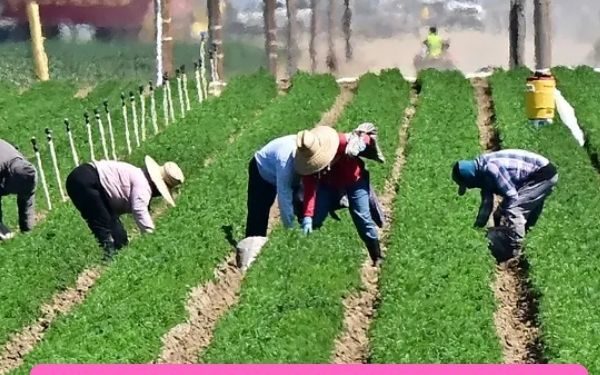DONNA, Texas (KVEO) – Farmers across the Rio Grande Valley are reporting a crisis as migrant workers, fearing ICE raids, are staying away from jobs crucial to keeping farms running.
Nick Billman, a farmer in Donna, says his fields have been empty of workers for the past week, leaving him scrambling to maintain his crops.
Related posts
This Article Includes
“That is when it has been zero people wanting to come out and be exposed, to be able to be picked up, whether they are legal or illegal,” said Billman.
Workforce Disappears Amid ICE Crackdown
Billman, who used to rely on a steady flow of workers, says the fear has now completely paralyzed his labor force. Even those legally eligible to work are hesitant to show up, afraid of being detained or deported.
“One hundred percent don’t want to come out of fear of being picked up, even if they are doing it the right way,” he said.
While he managed to clean up storm debris alone, he warned that the larger issue is far more serious — the future of the U.S. food supply may be at risk if farms can’t plant or harvest.
“Why plant if we cannot even harvest?” he asked. “We need more than just family hands to make it profitable.”
Federal Response Offers Temporary Hope
In response to mounting concerns, President Trump acknowledged that immigration enforcement was impacting American farms. ICE officers were directed to pause arrests at agricultural sites, restaurants, and hotels — a move intended to ease the pressure.
Still, the fear lingers. Farmers like Billman are not only short on help, but also feel vulnerable to scrutiny over their hiring practices.
“We don’t ask for papers — it’s not our job,” Billman explained. “If someone wants to work, we pay them, they file taxes — that’s their responsibility.”
Call for Reform and Legal Workforce Programs
Billman and others are urging immigration reform to protect both workers and America’s food supply. He referenced the historical Bracero Program, a U.S. initiative that brought Mexican laborers to help with wartime shortages from the 1940s to 1960s.
“Let’s give incentives to these people immigrating to our country,” said Billman. “Pay taxes, be vetted — it would work much better that way.”
The Texas Farm Bureau echoed these concerns, stressing the ongoing struggle to maintain a legal and stable agricultural workforce.
“Farm employees work hard every day to help produce healthy, American-grown food,” the bureau said. “We look forward to working with the Trump Administration and Congress on long-term solutions.”
For now, farmers like Billman are hoping for quick action, before fear-driven labor shortages do long-term damage to one of the country’s most essential industries.









